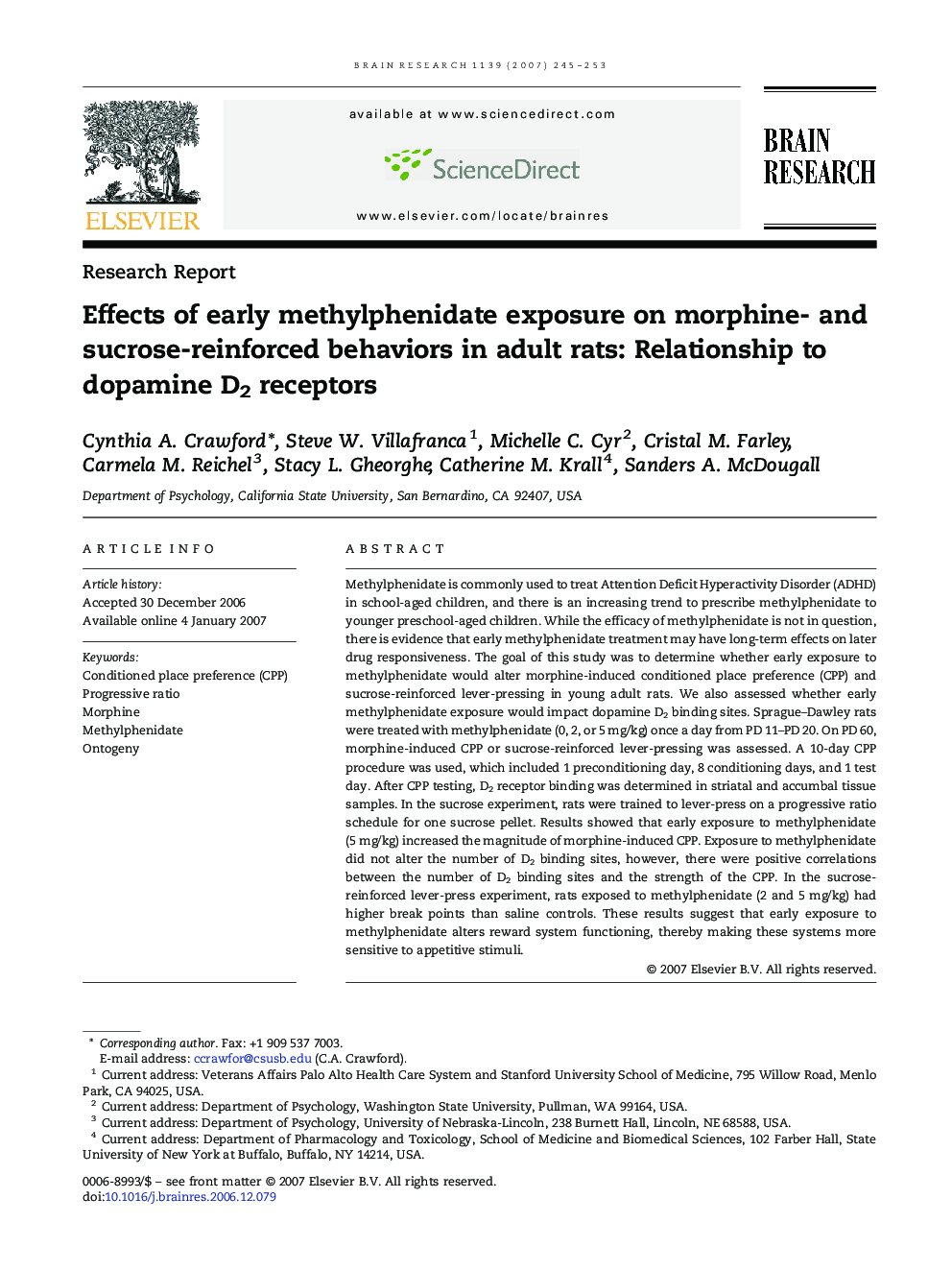| Article ID | Journal | Published Year | Pages | File Type |
|---|---|---|---|---|
| 4331491 | Brain Research | 2007 | 9 Pages |
Methylphenidate is commonly used to treat Attention Deficit Hyperactivity Disorder (ADHD) in school-aged children, and there is an increasing trend to prescribe methylphenidate to younger preschool-aged children. While the efficacy of methylphenidate is not in question, there is evidence that early methylphenidate treatment may have long-term effects on later drug responsiveness. The goal of this study was to determine whether early exposure to methylphenidate would alter morphine-induced conditioned place preference (CPP) and sucrose-reinforced lever-pressing in young adult rats. We also assessed whether early methylphenidate exposure would impact dopamine D2 binding sites. Sprague–Dawley rats were treated with methylphenidate (0, 2, or 5 mg/kg) once a day from PD 11–PD 20. On PD 60, morphine-induced CPP or sucrose-reinforced lever-pressing was assessed. A 10-day CPP procedure was used, which included 1 preconditioning day, 8 conditioning days, and 1 test day. After CPP testing, D2 receptor binding was determined in striatal and accumbal tissue samples. In the sucrose experiment, rats were trained to lever-press on a progressive ratio schedule for one sucrose pellet. Results showed that early exposure to methylphenidate (5 mg/kg) increased the magnitude of morphine-induced CPP. Exposure to methylphenidate did not alter the number of D2 binding sites, however, there were positive correlations between the number of D2 binding sites and the strength of the CPP. In the sucrose-reinforced lever-press experiment, rats exposed to methylphenidate (2 and 5 mg/kg) had higher break points than saline controls. These results suggest that early exposure to methylphenidate alters reward system functioning, thereby making these systems more sensitive to appetitive stimuli.
